|
Genres, Themes, Actors, and Directors:
- Diane Keaton Films
- Infidelity
- May-December Romance
- Meryl Streep Films
- Michael Murphy Films
- New York City
- Romantic Comedy
- Woody Allen Films
Response to Peary’s Review:
Peary admits that Manhattan — which he labels “perceptive, witty, [and] masterful” — is his “favorite Woody Allen film”; while I can’t quite agree, there’s no mistaking its status as one of Allen’s finest explorations of New Yorkers’ “insecurities, phobias, [and] quirkiness”. Reviewers at the time (including Peary) were clearly impressed by evidence of Allen’s “growing maturity… as a filmmaker”, with Peary himself noting that Allen finally allows his alter-ego character to be “mean to someone”, “unfair”, and “not the victim”. Ironically, however, this brutal honesty is exactly what makes Manhattan somewhat unpleasant to watch, given that we can clearly see the mistake Isaac (Allen) is making in breaking up with his “sweet, mature” girlfriend (Mariel Hemingway) who “loves him dearly” — if, that is, we’ve gotten over our initial discomfort at their enormous age discrepancy (and stopped wondering why Hemingway’s parents never appear on the scene to have a say in the matter). Diane Keaton is perfectly cast as the elusive object of Allen’s affections, but unlike in Annie Hall (1977), her character here is ultimately too annoying to enjoy.
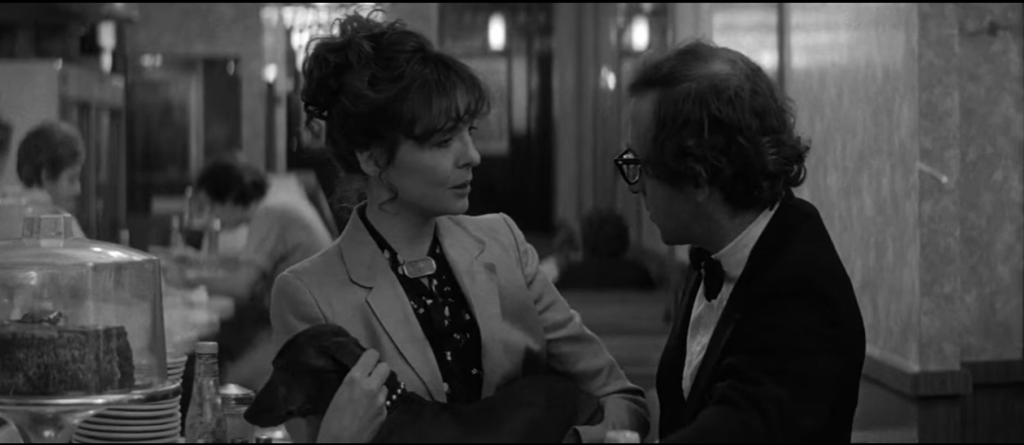
My favorite scenes — other than those which simply showcase Gordon Willis’ gorgeous shots of Manhattan — are those in which Allen interacts with his ex-wife, Meryl Streep, whose hyper-kinetic movement (she never stays still) reveals her intense discomfort at being around Allen even for a few minutes.
Redeeming Qualities and Moments:
- A truly heartfelt homage to New York City

- Mariel Hemingway as Tracy
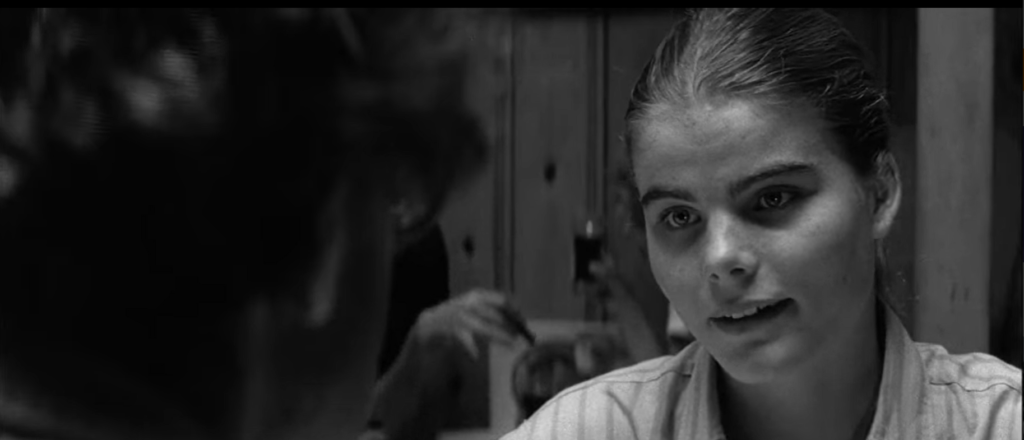
- Meryl Streep as Allen’s bitter ex-wife
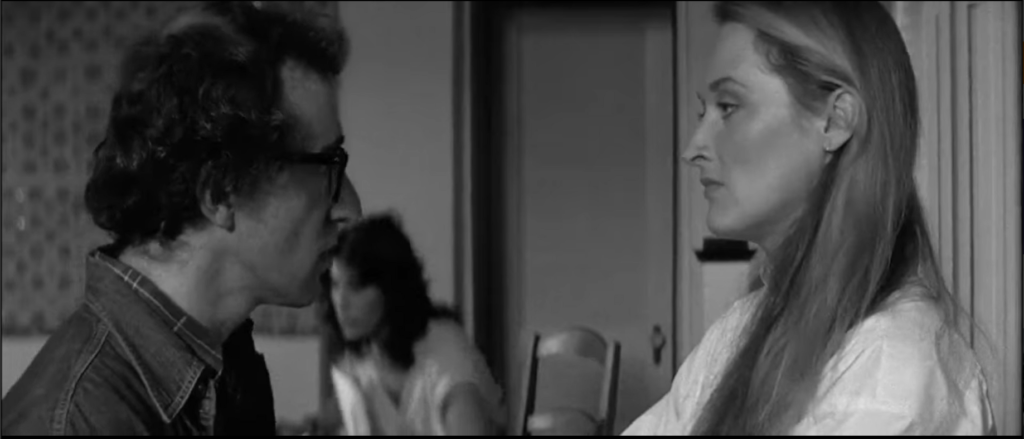
- Gordon Willis’s stunning cinematography
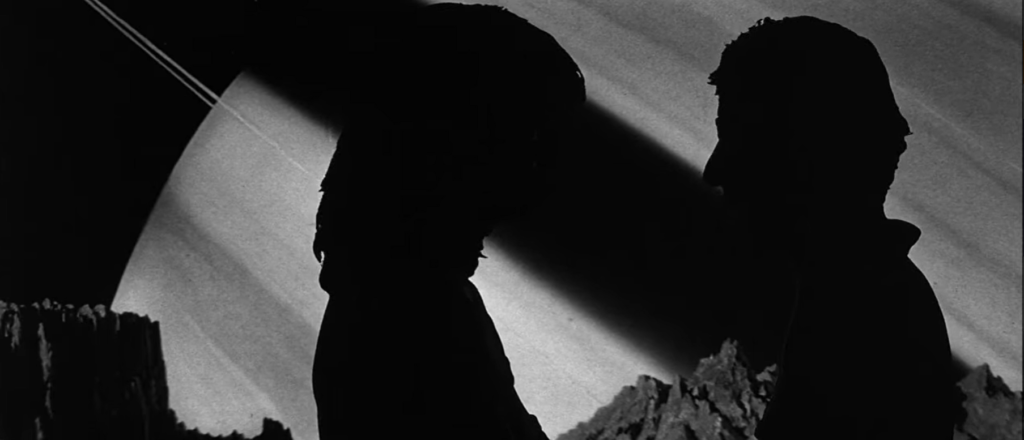
- The lyrical Gershwin score
Must See?
Yes, as one of Allen’s early masterpieces.
Categories
(Listed in 1001 Movies You Must See Before You Die)
Links:
|
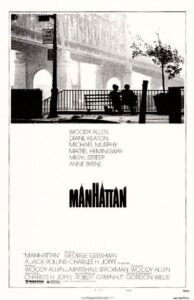





3 thoughts on “Manhattan (1979)”
A must; agreed – as one of Allen’s best, though I wouldn’t go so far as to call it a masterpiece.
There’s that indelible opening NYC montage. The heavenly use of Gershwin music. Willis’ masterful work: a real valentine to New York City.
And, at least for the first 2/3+, some very, very funny and on-target commentary on New Yorkers:
Allen: When it comes to relationships, I’m the winner of the August Strindberg award.
Streep: Look at you – you’re so threatened.
Keaton: (re: an art piece) It had a marvelous kind of negative capability.
[Allen is sometimes great at giving howlers to walk-on characters, such as:]
Woman at event: I finally had an orgasm and my doctor told me it was the wrong kind.
Allen: Years ago, I wrote a short story about my mother called ‘The Castrating Zionist’ and I wanted to expand it to a novel.
Allen: Your self-esteem is, like, a notch below Kafka’s.
Keaton: My problem is I’m both attracted to and repelled by the male organ.
It’s also pretty hilarious (esp. for ffs) when, for a date, Allen takes Keaton to a double-bill of Inagaki’s ‘Chushingura’ and Dovzhenko’s ‘Earth’.
The real force of the film ultimately rests with Keaton and Streep. Keaton plays basically an over-educated bag of insecurity and she runs with the concept. Streep, in three small scenes, offers a master class in simplicity.
An added note: Mariel Hemingway is endearing.
All that said, the film does fall apart in the last 20 minutes, when it becomes clear that there’s not as far to go here as we had hoped.
My favorite Allen film right now is Manhattan. Tomorrow it may be Annie Hall or Hannah and Her Sisters or Sleeper.
But right now, give me the sumptuous black & white cinematography and the complicated human relationships.
Manhattan was made during Woody Allen’s absolute peak as an auteur and neatly helped to close out the ’70s. As such it’s certainly a film that should be seen as it is one of a handful of important works of his career.
He went straight for the heart strings from the start in a lush “Chapter One” to his city with the help of Gershwin and Gordon Willis. Bravo for the first four minutes.
Alas, the gorgeous photography and music were the depth of the beauty. Manhattan was also unfortunately where (barring the Bergmanesque Interiors the year prior) Allen’s once impish fixation on sexual and relational dysfunction in prior films made a turn to the plain creepy via his character’s relationship with Hemingway’s underaged character. His best friend Murphy and his wife Byrne barely raise an eyebrow after an intro. They’re instantly charmed, so we should be too! Then, we have Allen’s character lecturing Murphy about cheating on his wife with the Keaton character? So of the two lurid scenarios, we’re being steered toward okaying the Allen/Hemingway relationship. Eww. And then we’re steered once more toward him stealing Keaton away from Murphy which could ironically eradicate all their transgressions. Eww.
Manhattan is not tongue-in-cheek like Annie Hall or Love and Death, or his other comedic works up to that time. It feels far more personal with incidental humor tossed in here and there. That style alone is not a drawback. But as such, there is nothing satirical or funny about Allen’s relationship with Hemingway. It’s portrayed as sentimentally sweet in a ludicrously naïve way throughout.
Peary said this was his favorite Allen movie, and I can see why. It is challenging, as he does take risks he hadn’t before, with the use of black and white anamorphic widescreen photography being one. The pseudo-intellectual dialogue along the lines of Annie Hall has some stellar moments. His character is more of a jerk than in previous movies, but I don’t agree with Peary that Allen breaking up with Hemingway shows “growing maturity in Allen as a filmmaker” here. The mature thing would have been to not go there in the first place. With the Allen/Hemingway subject matter he bordered on recklessness when he didn’t even need to.